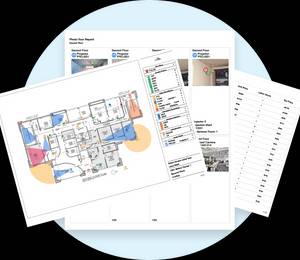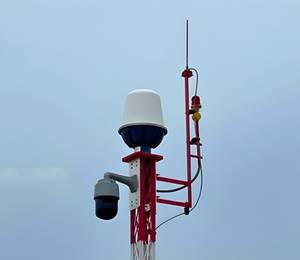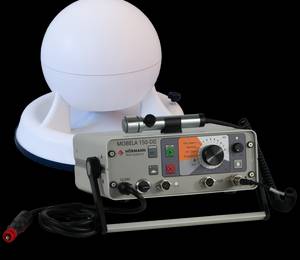The 3,323-km stretch that India shares with Pakistan is one of the most sensitive sections of its land borders. Fencing the entire stretch has been a challenge due to the difficult terrain and weather conditions. A Delhi-based startup is developing a perimeter security system for protecting India’s borders.
Kavach, developed by Cron Systems, is a laser and infrared-based fencing system that is weatherproof and can be implemented in all kinds of terrain. The company is currently piloting the system.
The system comprises poles that are placed 200m apart — five poles for a 1km stretch. There are differently designed poles for curves and bends. The poles are fitted with lasers and infrared-based sensors to detect any intrusions between them.
Once an intrusion is detected, a message is immediately sent to the base console unit, called the QRT (quick response tool). The soldier at the base is then presented with two options on the device display — ‘Secure’ or ‘SOS’. ‘Secure’ is to be selected if the soldier verifies the incident as a false positive. The ‘SOS’ option alerts the command base of the intrusion and also gives a further option to describe the intrusion.
“What we do is automate perimeter security. We create a barrier so when anyone comes through, we get to know there’s been an intrusion and the system responds accordingly,” says Tushar Chhabra, CEO and co-founder of Cron Systems.
There’s a certain number of false positives that occur, but the company is trying to keep the tolerance for such false positives very low. “Our biggest problem is pigs as their shape and size is similar to someone crawling on all fours,” says Chhabra,
The fences are interconnected and communicate with their base terminal via Cronnet, a virtual communication network that works on military grade encryption, developed in-house by Cron.
Getting power in the border area is not a problem — the area is so well lit that the lighting can be seen even from space. But as a safety and precautionary measure, Kavach has a built-in power backup and management system that can keep the fence up and running for over eight hours without external power.
The next iteration of Kavach will also include LIDAR (light detection and ranging) units that will give it better situational awareness on activities in its surroundings.
Cron Systems has also developed a system to help respond to the intrusion using autonomous vehicles and drones. The company has tied up with Israel-based manufacturer Automotive Robotic Industry (ARI), which makes all-terrain and weatherproof automated rovers called Amstaff. These rovers are capable of being fitted with anything from a firehose, to a taser, to even weapons, depending on the requirement.
For drone integration, the company has tied up with Israel-based drone manufacturer Aerodrome.
Another product Cron is currently piloting at the border is its Micron Control and Command (C&C) platform, which can work with any third-party sensor system more or less like a plug-and-play system to help collect and analyze data from it. “Once the Micron black box is deployed, all sensors can plug into them and can be monitored on a single system,” says Chhabra.
Data collection and analysis are essential at the border as logging the movement of troops in the border areas is a long and tedious manual process.
“The Border Security Force (BSF) keeps a written log of everything that happens at the gates; how many times, how many soldiers pass by etc. This data is important to them and they go through it in case something goes wrong. So, we integrated Micron to help monitor these gates and collect data and analyse it,” he says.
Kavach and Micron are also in the process of being prepared for pilots at other border regions of India.
The company is also in the process of developing autonomous tactical vehicles for the army to use in border areas with difficult terrain.











